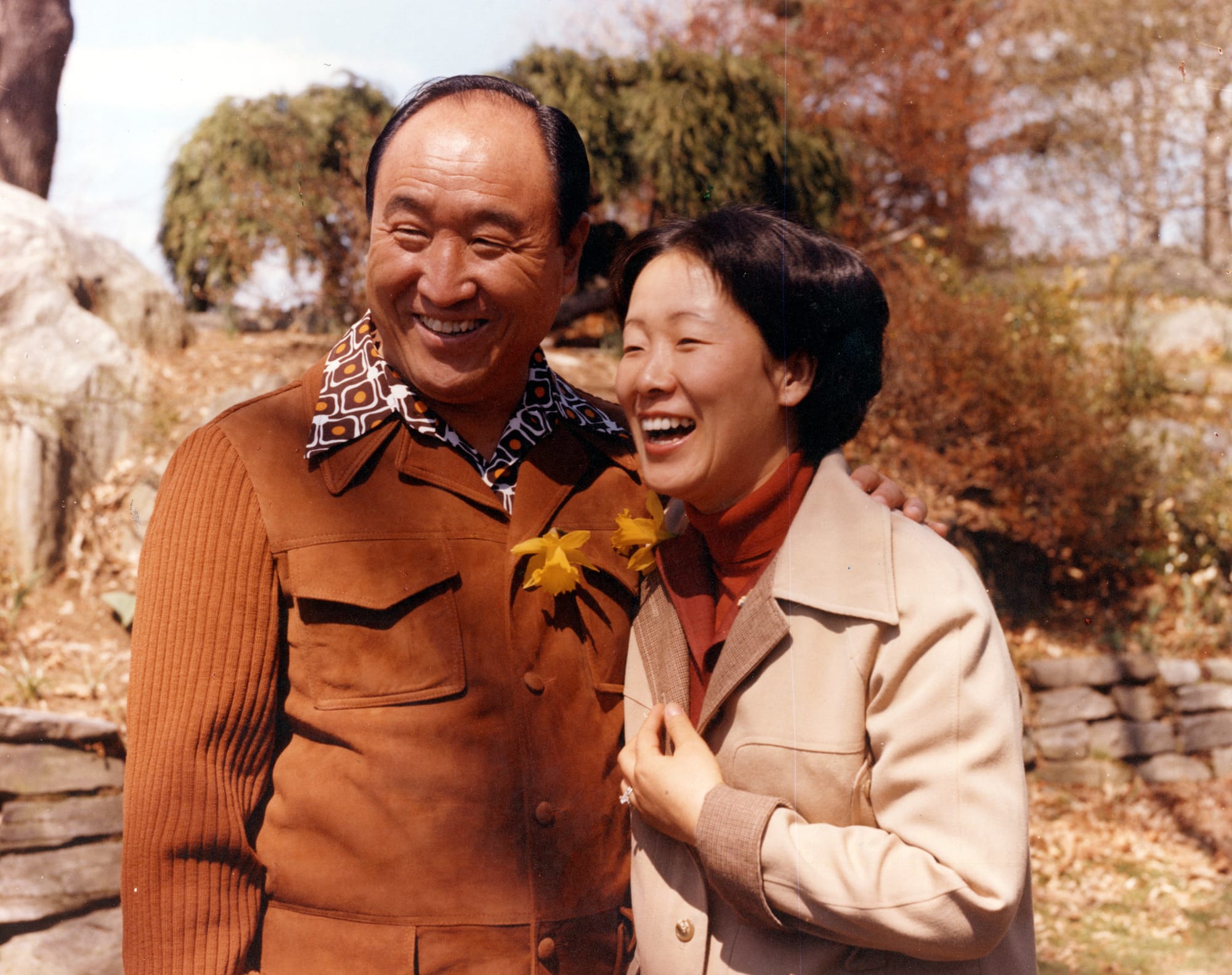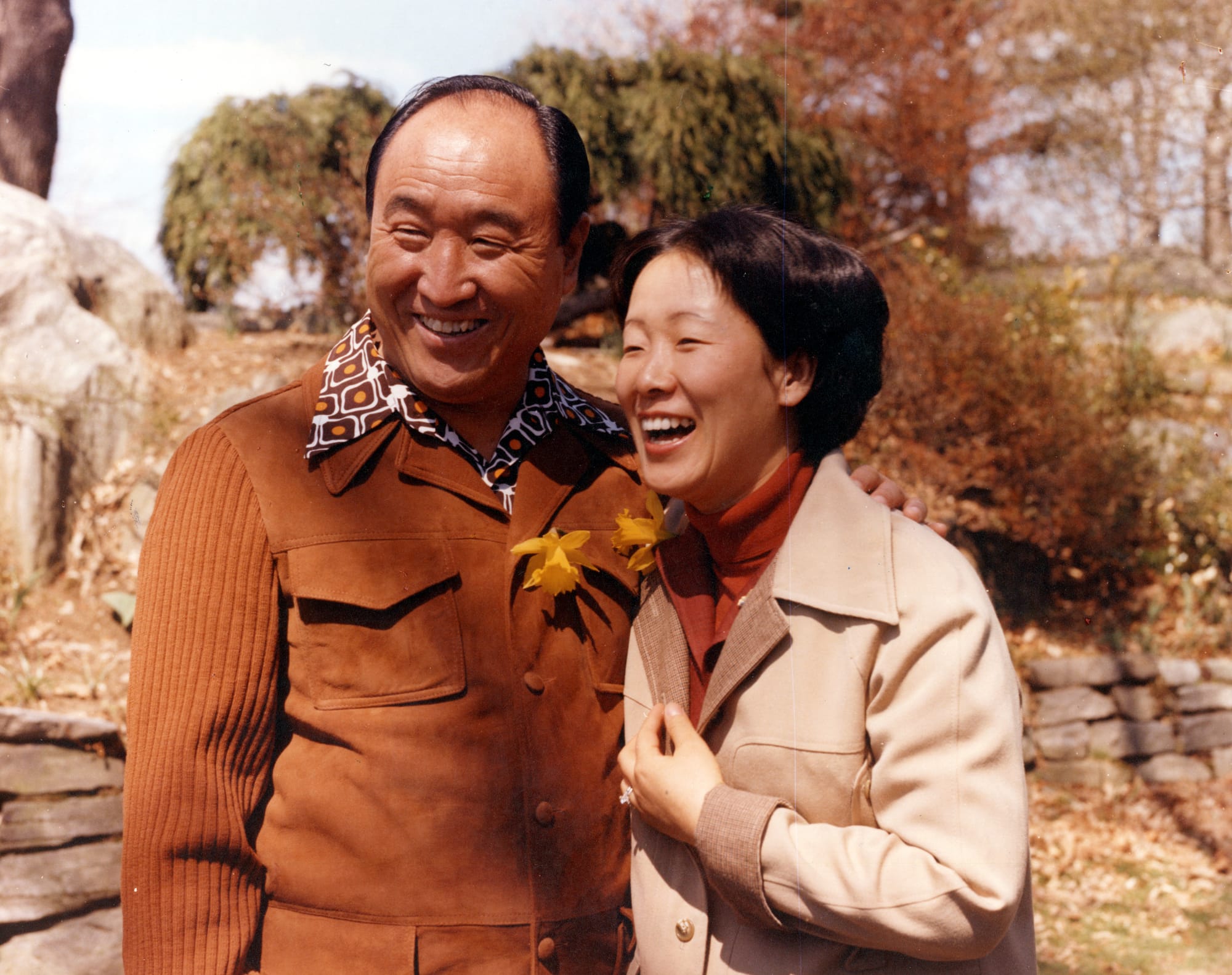Self-control is the basis of all virtues. Unruly thoughts, attractions of the senses, lustful desires, anger, covetousness, and avarice constantly arise in the mind of the person who has no mental discipline, and these impel him to do evil deeds.
If a person cannot even direct his own thoughts, desires, and actions, how can he possibly have integrity in his relations with others? How can he keep his life on the path of truth?
The philosopher John Locke said, “The discipline of desire is the background of character.” The passages in this section feature two nearly universal metaphors employed to describe self-control: military conquest and the horse and rider. The conquest of self is the most difficult of all conquests, yet the most important.
Father Moon teaches that regardless of one’s high-minded motives to change the world, all efforts are futile without the foundation of having mastered oneself. The task of gaining self-control is also likened to a rider on a wild horse.
The higher mind or conscience, like an experienced rider, must gain control over the beast within. He may have to employ the bit and bridle of self-denial and asceticism, yet at all costs, he must tame and subdue the lower self with its wanton desires.

Victory over the Self
Though one should conquer a million men on the battlefield, yet he, indeed, is the noblest victor who has conquered himself. Dhammapada 103 (Buddhism)
He who is slow to anger is better than the mighty, and he who rules his spirit than he who takes a city. Proverbs 16.32
I count him braver who overcomes his desires than him who conquers his enemies; for the hardest victory is the victory over self. Aristotle1 (Hellenism)
Who is strong? He who controls his passions. Mishnah, Avot 4.1 (Judaism)
He who conquers others has physical strength; He who conquers himself is strong. Tao Te Ching 33 (Taoism)
The Prophet declared, “We have returned from the lesser holy war (al jihad al-asghar) to the greater holy war (al jihad al-akbar).” They asked, “O Prophet of God, which is the greater war?” He replied, “Struggle against the lower self.”2 Hadith (Islam)
Though a man should conquer thousands and thousands of valiant foes, greater will be his victory if he conquers nobody but himself. Fight with yourself; why fight with external foes? He who conquers himself through himself will obtain happiness….
Difficult to conquer is oneself, but when that is conquered, everything is conquered. Uttaradhyayana Sutra 9.34-36 (Jainism)
In the human soul there is a better and also a worse principle; and when the better has the worse under control, then a man is said to be master of himself; and this is a term of praise: but when, owing to evil education or association, the better principle, which is also the smaller, is overwhelmed by the greater mass of the worse—in this case he is blamed and is called the slave of self and unprincipled. Plato, The Republic 9 (Hellenism)
Superior nature can be taught and inferior nature can be controlled. Han Yu (Confucianism)
Man should discover his own reality and not thwart himself. For he has the self as his only friend, or as his only enemy. A person has the self as a friend when he has conquered himself, But if he rejects his own reality, the self will war against him. Bhagavad-Gita 6.5-6 (Hinduism)

Teachings of Sun Myung Moon
“Before you desire to have dominion over the universe, you must first have dominion over yourself”: That is my motto. God’s love, life and truth can be developed on the basis of self-mastery. (Way of God’s Will 2.2)
Who is your enemy? The devil out there is not your enemy; you are your own enemy. Are your mind and body united as one in serving God? How difficult is it?
Which is easier, to unite the world or to unite your own self?
If you are united as an individual, then by extending that unity you can certainly unify the world. Then who is your enemy? Your own eyes are your enemy. Your own ears are your enemy.
Your own nose is your enemy. Your own mouth is your enemy. Your own thoughts are your enemy. (91:285-86, February 27, 1977)
Because we are fallen, we have some elements to overcome. Therefore, I put forward the motto, “Before you desire to have dominion over the universe, you must first have dominion over yourself.”
The issue is not gaining worldly dominion. To have dominion over the self—this is the absolute goal of training. It is the purpose that religious people have pursued throughout history, and the important responsibility assigned to each of us today. Yet, we neglect this task. (82:281, February 1, 1976)
Stopping the mind and the body from fighting is more difficult than signing a truce to end a world war. (320:249, April 16, 2000)

Self-Discipline: Training the Unruly Beast Within
Be not like a horse or a mule, without understanding, which must be curbed with bit and bridle, else it will not keep with you. Psalm 32.9
Man makes a harness for his beast; all the more should he make one for the beast within himself, his evil desire. Jerusalem Talmud, Sanhedrin 10.1 (Judaism)
Excellent are trained mules, so are thoroughbred horses of Sindh and noble tusked elephants; but far better is he who has trained himself.
Formerly this mind went wandering where it liked, as it wished and as it listed.
Today, with attentiveness I shall completely hold it in check, as a mahout controls an elephant in must. Dhammapada 322, 326 (Buddhism)
Know that the Self is the rider, and the body the chariot; that the intellect is the charioteer, and the mind the reins. The senses, say the wise, are the horses; the roads they travel are the mazes of desire…
When a man lacks discrimination and his mind is uncontrolled, his senses are unmanageable, like the restive horses of a charioteer. But when a man has discrimination and his mind is controlled, his senses, like the well-broken horses of a charioteer, lightly obey the rein. Katha Upanishad 1.3.3-6 (Hinduism)
The man of understanding… will regulate his bodily habit and training. Not yielding to brutal and irrational pleasures, he will regard even health as quite a secondary matter.
His first aim will be not to be fair or strong or well, unless he is likely to gain temperance thereby, but to temper the body so as to preserve the harmony of the soul. Plato, The Republic (Hellenism)
Irrigators lead the waters. Fletchers bend the shafts. Carpenters bend wood. The virtuous control themselves.3 Dhammapada 80 (Buddhism)
It is true that the mind is restless and difficult to control. But it can be conquered, Arjuna, through regular practice and detachment. Those who lack self-control will find it difficult to progress in meditation; but those who are self-controlled, striving earnestly through the right means, will attain the goal. Bhagavad-Gita 6.35-36 (Hinduism)
What is meant by saying that cultivation of the personal life depends on the rectification of the mind is that when one is affected by wrath to any extent, his mind will not be correct. When one is affected by fear to any extent, his mind will not be correct.
When he is affected by fondness to any extent, his mind will not be correct. When he is affected by worries and anxieties, his mind will not be correct.
When the mind is not present, we look but do not see, listen but do not hear, and eat but do not know the taste of food. This is what is meant by saying that the cultivation of the personal life depends on the rectification of the mind. Great Learning 7 (Confucianism)
That man is disciplined and happy who can prevail over the turmoil That springs from desire and anger, here on earth, before he leaves his body. Bhagavad-Gita 5.23 (Hinduism)

Teachings of Sun Myung Moon
The human conscience is the faculty of the mind that represents God. It does not exist for your sake but for the righteousness of Heaven. The conscience always strives for goodness.
The body rebels against it. The body desires to be comfortable; it is selfish and insatiable to satisfy its instinctive needs. The conscience reproaches such a body and tries to bring it into submission. This is the reason why conflict and struggle arise continually within the self.
Therefore, religions throughout history have taught people methods to strike the body. Religions are training grounds to enable us to control our bodily desires and have the body surrender to the mind.
They train and guide fallen people to become the men and women God intended at the creation. (219:118, August 28, 1991)
“Before you desire to have dominion over the universe, you must first have dominion over yourself.”I regard this as the most important matter. The three requisites for achieving this are to overcome the three enemies: food, sleep and sex. (366:287, January 17, 2002)
Despite every effort at self-cultivation, people are often caught by love. When they respond to the temptation of a handsome man or a beautiful woman, they are caught. Human beings cannot claim to have attained self-mastery in matters of love.
People can control their sexual desire when they become one with God, but as long as they are self-centered, they cannot overcome it. Even in movies, when a woman is being raped, at first she fights, “No, no!” but once her passion is aroused, she embraces the man. The power of love makes people give in to their enemies. (306:196, September 23, 1998)
Due to the Human Fall, love today is basically self-centered. That self‑centered love does not originate from the mind but rather is centered upon the body. The body is where Satan conducts his activities.
The body is Satan’s dance hall; it is Satan’s mooring post. The mind represents God’s dwelling place—the subject position. But the body, which should assume the object's position, tries to make itself another subject.
It continually asserts itself, alluring or deceiving the mind. In human life, it is crucial to correct this relationship. Therefore, God established religion to restore fallen humans.
Through religion, God is teaching people how to strengthen their God‑centered mind and reverse the body’s dominion over their life and character.
That is why religion requires fasting, sacrificial service, and a meek and humble attitude. These are methods to reduce the power of the body and make the body submit to the mind.
Normally in religious life it takes about three to five years to overcome the habit of a body‑centered life and create a new, spirit‑centered way of life. (201:209, April 9, 1990)
When I put myself at the zero point and completely deny myself, at that point, my mind and body can achieve perfect unity. (October 21, 2001)
Your goal is for the mind to be in control 100 percent. It is not enough for the mind and body to be 50-50. [After death] such a person will end up in the mid-level spirit world, in a buffer zone.
If a person follows the body 60 percent of the time, he will undoubtedly go to hell… Always keep in mind that “I” am the womb that brings forth both good and evil. (37:122, December 23, 1970)
Are God’s mind and body fighting?
No, they do not fight. How about you? If your mind and body do not become one, you can never enter the Kingdom of Heaven. (305:111, April 19, 1999)







